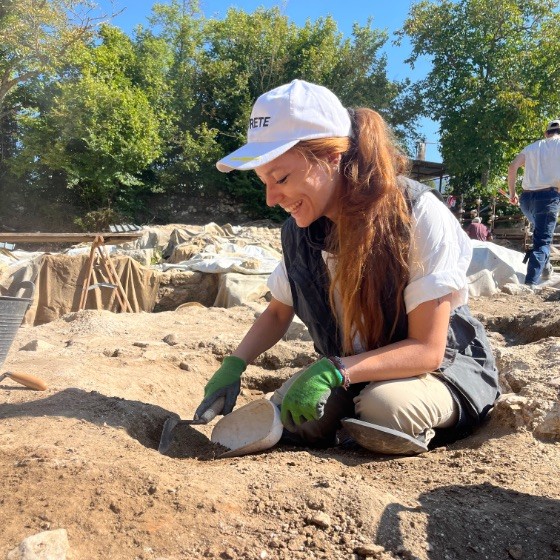
Bianca Costi Farias
I hold a Master’s degree in Archaeological Sciences from the University of Padua, Italy, where I graduated with maximum grade, served as student president, and earned a merit-based scholarship from the Italian Ministry of Foreign Affairs. My thesis focused on the archaeometric characterization of ceramics from the sanctuary of Apollo Pythios in Gortyn, Crete, exploring scientific methodologies to understand ceramic production amidst Gortyn’s urban transformations. I also hold a Bachelor’s degree in History from the Federal University of Santa Catarina, Brazil, which has provided me with a solid foundation to understand the complex nuances that shaped human behaviour throughout history.
Professionally, I am gaining valuable experience as an Erasmus trainee in Archaeometry at Eberhard Karls Universität Tübingen, Germany, and have interned in museums and heritage institutions in Italy and Brazil. I have contributed to heritage preservation projects, presented at international conferences, and published a paper in a Brazilian scientific journal.
Research interests
I am deeply interested in exploring the intersection of archaeology, history, and material culture, particularly in understanding how human societies interact with their natural environment. With research focusing on understanding the socio-cultural patterns that influenced ceramic production in the transforming landscape of Iron Age Crete, my project investigates how pottery craftsmanship is rooted in social characteristics and transformations.
By analyzing the relationship between production techniques and technological choices shaped by in terms of cultural aspects, I aim to explore how ceramic production reflects the city’s identity, particularly during the significant urban transformations of the Early Iron Age, which culminated in the monumentalization of the sanctuary of Apollo in the 7th century BCE and led to the creation of a new urban layout in the city. My interests perfectly align with ReForm’s research goals on the relationship between resources and knowledge, as I aim to understand ceramic production amidst social transformations and within human-environment interactions.
